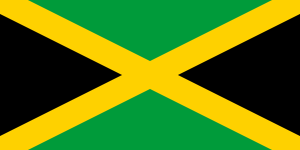Finance minister
A finance minister is an executive or cabinet position in charge of one or more of government finances, economic policy and financial regulation. It may also be a junior minister in the finance department, the British Treasury, for example has four junior ministers.
A finance minister's portfolio has a large variety of names across the world, such as "treasury", "finance", "financial affairs", "economy" or "economic affairs". The position of the finance minister might be named for this portfolio, but it may also have some other name, like "Treasurer" or, in the United Kingdom, "Chancellor of the Exchequer".
The duties of a finance minister differ between countries. Typically, they encompass one or more of government finance, fiscal policy, and financial regulation, but there are significant differences between countries:
- in some countries the finance minister might also have oversight of monetary policy (while in other countries that is the responsibility of an independent central bank);
- in some countries the finance minister might be assisted by one or more other ministers (some supported by a separate government department) with respect to fiscal policy or budget formation;
- in many countries there is a separate portfolio for general economic policy in the form of a ministry of "economic affairs" or "national economy" or "commerce";
- in many countries financial regulation is handled by a separate agency, which might be overseen by the finance ministry or some other government body.
Finance ministers are also often found in governments of federated states or provinces of a federal country. In these cases their powers may be substantially limited by superior legislative or fiscal policy, notably the control of taxation, spending, currency, inter-bank interest rates and the money supply.
The powers of a finance minister vary between governments. Sometimes the finance minister is the most powerful cabinet post, as in Canada or New Zealand.[1] In the United Kingdom and Australia, the finance minister (called the "Chancellor of the Exchequer" and the "Treasurer" respectively) is in practice the most important cabinet post after the Prime Minister.
In the United States, the finance minister is called the "Secretary of the Treasury", though there is a separate and subordinate Treasurer of the United States, and it is the director of the Office of Management and Budget who drafts the budget.
In the United Kingdom, the equivalent of the finance minister is the Chancellor of the Exchequer. Due to a quirk of history, the Chancellor of the Exchequer is also styled Second Lord of the Treasury with the Prime Minister also holding the historic position of First Lord of the Treasury. This signals the Prime Minister's seniority and superior responsibility over the Treasury.
In Hong Kong the finance minister is called the Financial Secretary, though there is a Secretary for the Treasury subordinate to him.
In Australia, the senior minister is the Treasurer, although there is a Minister for Finance who is more junior and heads a separate portfolio of Finance and Deregulation.
Finance ministers can be unpopular if they must raise taxes or cut spending. Finance ministers whose key decisions had directly benefited both the performance and perception of their country’s economic and financial achievements are recognised by the annual Euromoney Finance Minister of the Year award.
Country-related articles and lists
 Albania: Ministry of Finance
Albania: Ministry of Finance Algeria: Ministry of Finance
Algeria: Ministry of Finance Angola: Ministry of Finance
Angola: Ministry of Finance Argentina: Minister of Economy and Production
Argentina: Minister of Economy and Production Australia: Treasurer of Australia (with list). There is also a Minister for Finance who is responsible for areas such as government expenditure, financial management, and the operations of government.
Australia: Treasurer of Australia (with list). There is also a Minister for Finance who is responsible for areas such as government expenditure, financial management, and the operations of government. Bahamas: Minister of Finance—There is also a Minister of State for Finance who is junior to the Minister.
Bahamas: Minister of Finance—There is also a Minister of State for Finance who is junior to the Minister. Bangladesh: Minister of Finance
Bangladesh: Minister of Finance Belarus: Ministry of Finance
Belarus: Ministry of Finance.svg.png) Belgium: Ministry of Finance (list)
Belgium: Ministry of Finance (list) Brazil: Ministry of Finance
Brazil: Ministry of Finance Bulgaria: Ministry of Finance (list)
Bulgaria: Ministry of Finance (list) Burma: Ministry of Finance
Burma: Ministry of Finance Cambodia: Ministry of Finance
Cambodia: Ministry of Finance  Canada: Minister of Finance (list)
Canada: Minister of Finance (list) Chile:Ministry of Finance of Chile
Chile:Ministry of Finance of Chile People's Republic of China: Minister of Finance - the Chairman of the National Development and Reform Commission also has power over government finance and the economy
People's Republic of China: Minister of Finance - the Chairman of the National Development and Reform Commission also has power over government finance and the economy
 Hong Kong: Financial Secretary (with list), Secretary for the Treasury (under Financial Secretary)
Hong Kong: Financial Secretary (with list), Secretary for the Treasury (under Financial Secretary)
 Republic of China: Ministry of Finance
Republic of China: Ministry of Finance Cyprus: Minister of Finance of the Republic of Cyprus
Cyprus: Minister of Finance of the Republic of Cyprus Czech Republic: Finance Minister of the Czech Republic
Czech Republic: Finance Minister of the Czech Republic Denmark: Finance Minister (list)
Denmark: Finance Minister (list) Dominican Republic: Ministry of Finance (list)
Dominican Republic: Ministry of Finance (list) Dominican Republic: Ministry of Economy
Dominican Republic: Ministry of Economy East Timor: Ministry of Finance
East Timor: Ministry of Finance Egypt: Minister of Finance
Egypt: Minister of Finance Ethiopia: Ministry of Finance and Economic Development
Ethiopia: Ministry of Finance and Economic Development European Union: Commissioner for Economic and Financial Affairs
European Union: Commissioner for Economic and Financial Affairs Finland: Minister of Finance (with list)
Finland: Minister of Finance (with list) France: Minister of the Economy, Finance and Employment (list)
France: Minister of the Economy, Finance and Employment (list) Germany: Minister of Finance (list)
Germany: Minister of Finance (list) Greece: Minister for Finance
Greece: Minister for Finance Hungary: Minister of Finance (with list)
Hungary: Minister of Finance (with list) Iceland: Minister of Finance
Iceland: Minister of Finance India: Finance Minister of India, (list)
India: Finance Minister of India, (list) Indonesia: Minister of Finance (with list)
Indonesia: Minister of Finance (with list) Iraq: Minister of Finance
Iraq: Minister of Finance Ireland: Minister for Finance (with list), Minister for Public Expenditure and Reform
Ireland: Minister for Finance (with list), Minister for Public Expenditure and Reform Israel: Finance Minister of Israel
Israel: Finance Minister of Israel Italy: List of Ministers of Economy and Finance
Italy: List of Ministers of Economy and Finance Jamaica: Minister of Finance
Jamaica: Minister of Finance Japan: Minister of Finance (with list)
Japan: Minister of Finance (with list) Lebanon: Minister of Finance
Lebanon: Minister of Finance Liberia: Ministry of Finance (with list)
Liberia: Ministry of Finance (with list) Lithuania: Minister of Finance
Lithuania: Minister of Finance Macedonia: Ministry of Finance
Macedonia: Ministry of Finance Malaysia: Ministry of Finance
Malaysia: Ministry of Finance Mexico: Secretary of Finance
Mexico: Secretary of Finance Montenegro: Ministry of Finance (with list)
Montenegro: Ministry of Finance (with list)-
 Nepal: Ministry of Finance
Nepal: Ministry of Finance  Netherlands: Ministry of Finance
Netherlands: Ministry of Finance New Zealand: Minister of Finance (with list)
New Zealand: Minister of Finance (with list) Norway: Minister of Finance (with list)
Norway: Minister of Finance (with list) Pakistan: Finance Minister of Pakistan (with list)
Pakistan: Finance Minister of Pakistan (with list) Peru: Ministry of Economy and Finance
Peru: Ministry of Economy and Finance Philippines: Secretary of Finance (with list)
Philippines: Secretary of Finance (with list) Malta: Minister of Finance (with list)
Malta: Minister of Finance (with list) Poland: Minister of Finance
Poland: Minister of Finance Romania: Ministry of Public Finance
Romania: Ministry of Public Finance Russia: Ministry of Finance of the Russian Federation. See also Finance Minister of Imperial Russia
Russia: Ministry of Finance of the Russian Federation. See also Finance Minister of Imperial Russia Samoa: Minister for Finance (with list)
Samoa: Minister for Finance (with list) Serbia: Minister of Finance
Serbia: Minister of Finance Singapore: Minister for Finance, Ministry of Finance
Singapore: Minister for Finance, Ministry of Finance Slovenia: Minister of Finance
Slovenia: Minister of Finance Somalia: Ministry of Finance and Planning
Somalia: Ministry of Finance and Planning South Africa: Minister of Finance
South Africa: Minister of Finance South Korea: Ministry of Strategy and Finance
South Korea: Ministry of Strategy and Finance South Sudan: Ministry of Finance and Economic Planning
South Sudan: Ministry of Finance and Economic Planning Soviet Union: Ministry of Finance (Soviet Union) (List): See also chairman of the State Bank (Gosbank) and the chairman of the State Planning Committee (Gosplan)
Soviet Union: Ministry of Finance (Soviet Union) (List): See also chairman of the State Bank (Gosbank) and the chairman of the State Planning Committee (Gosplan) Spain: Minister of Finance
Spain: Minister of Finance Sri Lanka: Minister of Finance
Sri Lanka: Minister of Finance Sweden: Minister for Finance (with list)
Sweden: Minister for Finance (with list) Switzerland: Member of the Federal Council heading the "Federal Department of Finance" (with list)
Switzerland: Member of the Federal Council heading the "Federal Department of Finance" (with list)-
 Tanzania: Ministry of Finance and Economic Affairs
Tanzania: Ministry of Finance and Economic Affairs -
 Thailand: Ministry of Finance
Thailand: Ministry of Finance -
 Trinidad and Tobago: Ministry of Finance [2]
Trinidad and Tobago: Ministry of Finance [2]  Turkey: Ministry of Finance (list)
Turkey: Ministry of Finance (list) Uganda: Ministry of Finance, Planning and Economic Development
Uganda: Ministry of Finance, Planning and Economic Development United Kingdom: Chancellor of the Exchequer (with list) and Her Majesty's Treasury
United Kingdom: Chancellor of the Exchequer (with list) and Her Majesty's Treasury
 United States: Secretary of the Treasury (with list)
United States: Secretary of the Treasury (with list) Uruguay: Minister for Economy and Finance
Uruguay: Minister for Economy and Finance Uzbekistan: Ministry of Finance (Uzbekistan)
Uzbekistan: Ministry of Finance (Uzbekistan) Vietnam: Ministry of Finance
Vietnam: Ministry of Finance
See also
References
- ↑ Clifton, Jane (19 September 2013). "Influentials: Politics". New Zealand Listener. Retrieved 15 November 2013.
- ↑ http://www.finance.gov.tt/
| ||||||||||||||||||||||||||